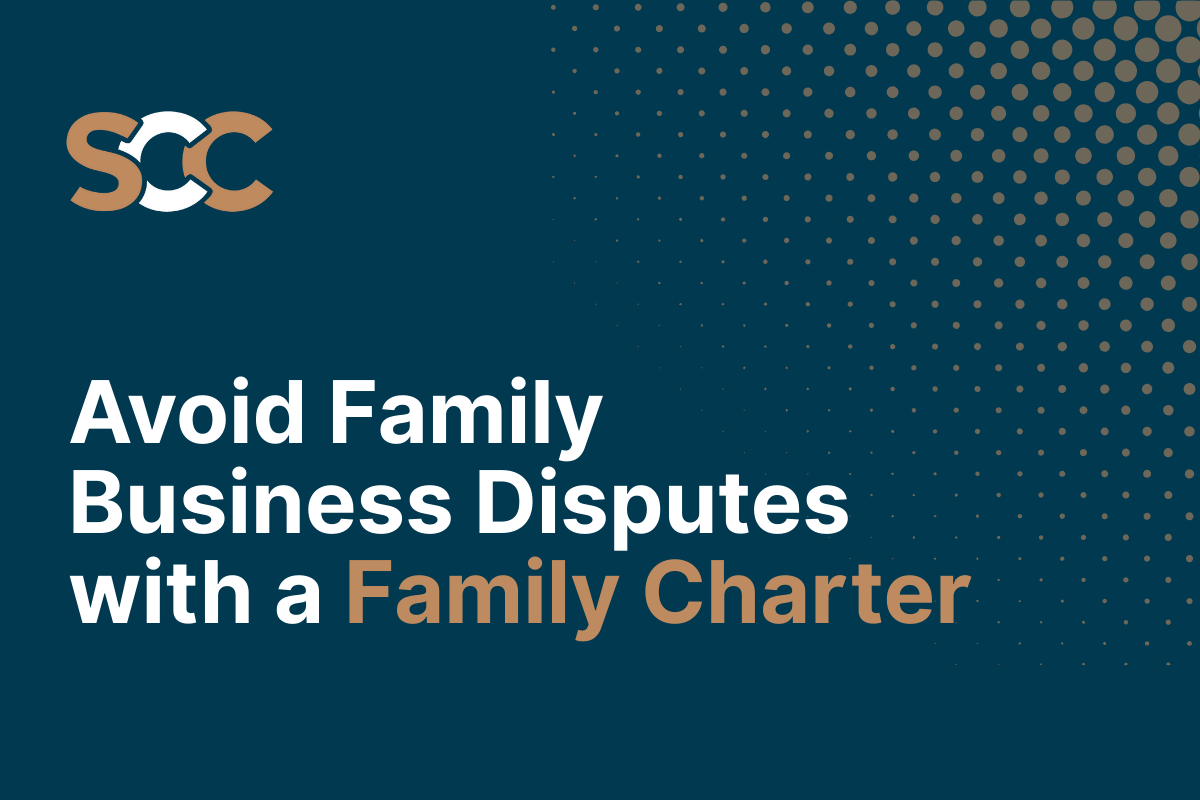 C
C
 C
C

Sep 30
At SCC, we have unfortunately seen too many family businesses run into trouble because of disagreements over spouses joining the business, who’s in charge when someone retires or conflicts about family remuneration. The professional and personal lines get blurred very easily and workplace tensions can lead to family feuds.
Take the Roberts family who have successfully run “Roberts & Sons Builders” for three generations. The founder, James, built the business on trust. His son, David, continued this legacy, bringing his two children, Sarah and Mark, into the fold. Sarah, an architect, has a vision to expand into high-end residential projects, while Mark, a project manager, wants to stick to the company’s profitable commercial roots.
As David approaches retirement, he assumes his children will take over as a team, but their differing visions, and the unspoken tension over who will get the founder’s shares, are beginning to tear the family apart. A simple disagreement has become a significant threat to both the business and the family’s relationships.
Business founders build businesses for the future benefit of their families wealth and relationships but quite often the opposite is the reality.
This is where a Family Charter comes in.

A Family Charter is a document that outlines the rules and joint agreement governing the family’s relationship with the business. It’s a proactive measure, a conversation starter that helps families define their shared vision and create a framework for decision-making.
It acts as a ‘playbook’ for your family business. It is not, however, a legal contract. Instead it is a family agreement that factors in everyone’s requirements and helps to:
Inheritance tax changes in the 2024 Autumn budget were unheard of and family planning across the board has never been so important. Changes to Business Property Relief (BPR) and Agricultural Property Relief (APR) means that succession planning is vital for the long-term viability and legacy of family businesses. Having a family charter in place will facilitate discussions about how the wealth will be passed down in an agreeable fashion whilst also being tax efficient.
Having a team of specialists that cover wealth planning and tax can help family businesses create strategic plans.
In the hypothetical case of the Roberts family, unspoken expectations can lead to the biggest disagreements. A Family Charter forces these critical conversations to happen in a structured, calm environment, addressing potential points of friction before they become a crisis and benefiting only solicitors and barristers.
By separating family dynamics from business decisions, a charter helps to ensure that business disagreements don’t spill over into family gatherings. It provides a neutral, agreed-upon process for handling difficult issues, protecting the most valuable asset of all: the family itself.
A well-crafted charter provides a clear roadmap for the future. It ensures that the business can weather transitions, whether due to retirement, death, or a shift in market strategy. It formalises a succession plan, making sure the right person is in place to lead the company into the next generation.
For non-family employees, a Family Charter provides clarity and shows a commitment to professional management. It demonstrates that the business is run on merit, not just on family ties, making it a more attractive place to work.
While every charter is unique, they often include sections on:
At SCC, we have an in-house specialist team ready to create your family charter in conjunction with the business shareholders agreement, family wills and business and individual tax strategies. Protecting and planning is essential to a successful future for family businesses and ensuring family wealth and relationships are paramount. Contact us today to discuss how we can help your family business.
Contact us to find out more about SCC services
NI:
UK
ROI:
Email Address:
Friday
Our award-winning team across our offices in the UK and Ireland collaborates to deliver the highest standards in a fast moving and evolving manner.